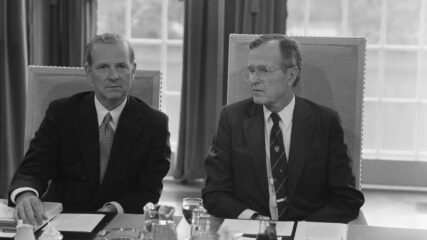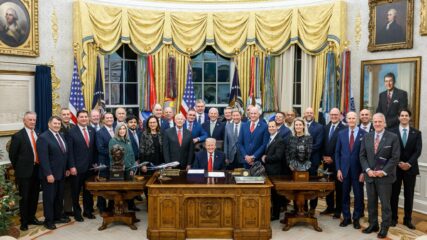Professor Kenneth W. Stein, Emory University and Center for Israel Education
Source: Anna and Max Nordau, Max Nordau: A Biography, Nordau Institute, New York, 1943, pp. 132-136.
Context and perspective are key elements in understanding history. Zionism emerged in the 19th century because there was a unique Jewish identity built around belief, Torah, ritual, and community concern for one another. And second, the presence of wretched anti-Semitism. Pronounced anti-Jewish feeling forced Jews into precarious living, where oppressive impoverishment, physical threats, and denial of citizenship rights were pervasive. Jews hoped that they would be emancipated from oppression through the enlightenment, but that objective proved to be a false dawn in just about all places where Jews resided. They were always inhabitants, rarely citizens. Government sanctioned anti-Semitism combined with racist sentiments held not just by local politicians but by many in the general public caused some Jews to change religious practice or move to migrate to more secure venues. Zionism was another choice: the notion that true Jewish emancipation could only be found by creating a secure place of their own, evolving a majority Jewish state. That prospect could shield them from the vicissitudes of economic deprivation and the scourge of anti-Semitism. It could also preserve their religious identity, even if the Zionists themselves were not religious in practice.
In the last quarter of the 20th century, Max Nordau (1849-1923) and his friend Theodor Herzl witnessed anti-Semitic oppression. Both were born in Hungry. They became friends. They were middle class essayists and writers; becoming impassionedly indignant by the Dreyfus Affair in France in the early 1890s. There, a French Jewish military captain was erroneously and intentionally accused of spying for Germany. Both believed that the prospects of Jewish emancipation in a liberalizing Europe was impossible to achieve. Herzl wrote The Jewish State in 1896, an outline for how Jews should take destiny into their own hands and build a territory of their own.
Nordau earned a medical degree and, like Herzl, became a devout Zionist. He attended the first Zionist Congress in Basle, Switzerland in August 1897; delivering an impassioned speech about the general Jewish condition in Europe. Nordau’s engagement in the Zionist organization in its early years induced many Jewish intellectuals to follow suit. According to the noted Israeli political scientist and Zionist historian, Shlomo Avineri, “If Herzl gave Zionism an address, Nordau and his Orthodox Jewish background understood better than Herzl the impulses and actions of the ‘Jewish street.’” When Herzl died suddenly in 1904 at the age of 44, Nordau was asked, but declined, to lead the Zionist movement. Nonetheless, he remained active as an often-quoted representative of the Zionist effort to link Jews to the land of Israel. Nordau was part of a cohort of dedicated, early Zionist leaders. They included Menachem Ussishkin, who shaped the Jewish National Fund’s early years; David Wolffsohn, who followed Herzl to lead the Zionist movement; and later Chaim Weizmann, who negotiated for the Balfour Declaration during World War I. These individuals demonstrated how a stable of capable leaders, even with greatly diverse outlooks, led the Zionist movement possessed as it pushed forward toward taking an idea and making it a reality. Nordau’s 1897 speech at the First Zionist Congress characterized his impassioned commitment to Zionism which these early leaders possessed. He spoke about the wretched physical insecurity Jews endured. When perspective is applied to the times when political Zionism evolved in the mid-1800s, it is easy to understand why some Jews wanted to exchange their precarious existence of living on the far margins of societies and establish through diligence and sacrifice a secure future for themselves, in a territorial entity of their own.










